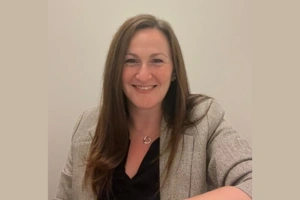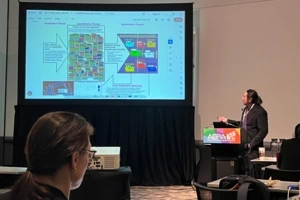Faculty Expert
-
Jonathan Zimmerman
Judy and Howard Berkowitz Professor in Education
Policy, Organizations, Leadership, and Systems Division
With free speech on center stage in public consciousness and politics, Penn GSE Professor Jonathan Zimmerman and editorial cartoonist Signe Wilkinson are being recognized for their contribution to the conversation. Zimmerman and Wilkinson’s book, “Free Speech and Why You Should Give a Damn,” has been honored with a gold prize in the 34th annual IBPA Benjamin Franklin Award program’s “Political & Current Events” category.
“Free Speech and Why You Should Give a Damn” features political commentary by Zimmerman alongside Wilkinson’s drawings. An educational historian, Zimmerman is the Judy and Howard Berkowitz Professor in Education in the Literacy, Culture, and International Education Division. He is also a frequent op-ed contributor to major publications including The New York Times and The Washington Post. “Free Speech and Why You Should Give a Damn” (City of Light Publishing, 2021) is his eighth book, and it traces the history of free speech in the U.S., starting with John Adams through the recent COVID-19 pandemic. Wilkinson is a Pulitzer Prize–winning illustrator and editorial cartoonist for The Philadelphia Inquirer.
When Zimmerman set out to write the book, he said he had a simple goal: To remind his students and his daughters about the critical role free speech has played in every campaign in U.S. history for social or racial justice. From resistance to Jim Crow laws to women’s suffrage to LGBTQ+ rights, Zimmerman said free speech is at the core of nearly every major movement.
“To critique oppression, you need the freedom to raise your voice against it. Take that away, and everything stays the same,” Zimmerman said.
The 34th annual IBPA Benjamin Franklin Awards recognize excellence in independent book publishing across 57 categories. The award is one of independent publishing’s most prestigious prizes, and Zimmerman hopes it raises the book’s profile.
“We're humbled to join the other recipients this year, and we hope that this award will bring more recognition not just to our book, but — more importantly — to free speech, which needs all of the attention and protection that it can get,” he said.
Zimmerman has a larger goal too — he wants to reframe the notion of free speech on college campuses. Too often, he said, free speech has been coded as conservative or reactionary and gives cover to hate speech. While hate speech might be a form of expression, Zimmerman said Americans need to raise their voices against it and defend the principle of free speech.
“But it’s wrong to censor speech we don’t like, which will — in the end — harm the people who have the least. I hope that my book can help us remember the progressive roots — and the progressive potential — of freedom of speech. If we want to correct any wrong, we must defend the right to speak,” he said.
The project started after Wilkinson approached Zimmerman to have coffee. She had read some of his op-eds on free speech and suggested they collaborate on a project. Like Zimmerman, Wilkinson is a staunch advocate for freedom of speech, and Zimmerman said she is highly persuasive. “You don’t turn down Signe Wilkinson,” he said.
The book was published by City of Lights Publishing, a leading independent publisher. “Free Speech and Why You Should Give a Damn” is the seventh City of Light title to receive an IBPA Benjamin Franklin Award.
When readers dive into his book, Zimmerman said he hopes they’ll learn about the long history of censorship in the U.S., including restricting protests during American wars, states censoring movies for political and sexual content, and students not being able to freely express themselves in public schools until the 1960s. Reflecting on past censorship and the current political discord are powerful reminders that freedom of speech needs to be protected and respected, Zimmerman said.
“It’s fairly new, and it’s always fragile, and we can lose it at any time,” he said.
For his next project, Zimmerman is working on a book about how American schools and universities have responded to health emergencies over the past 200 years.
Media Inquiries
Penn GSE Communications is here to help reporters connect with the education experts they need.









